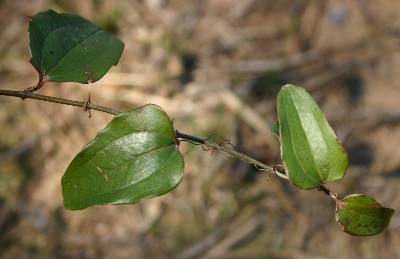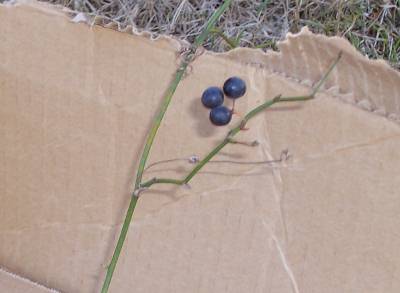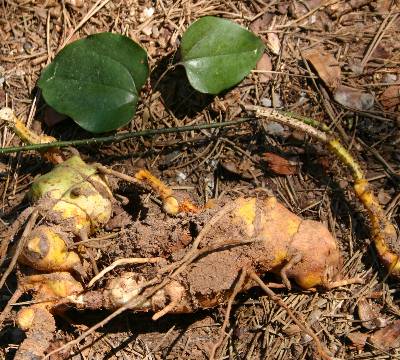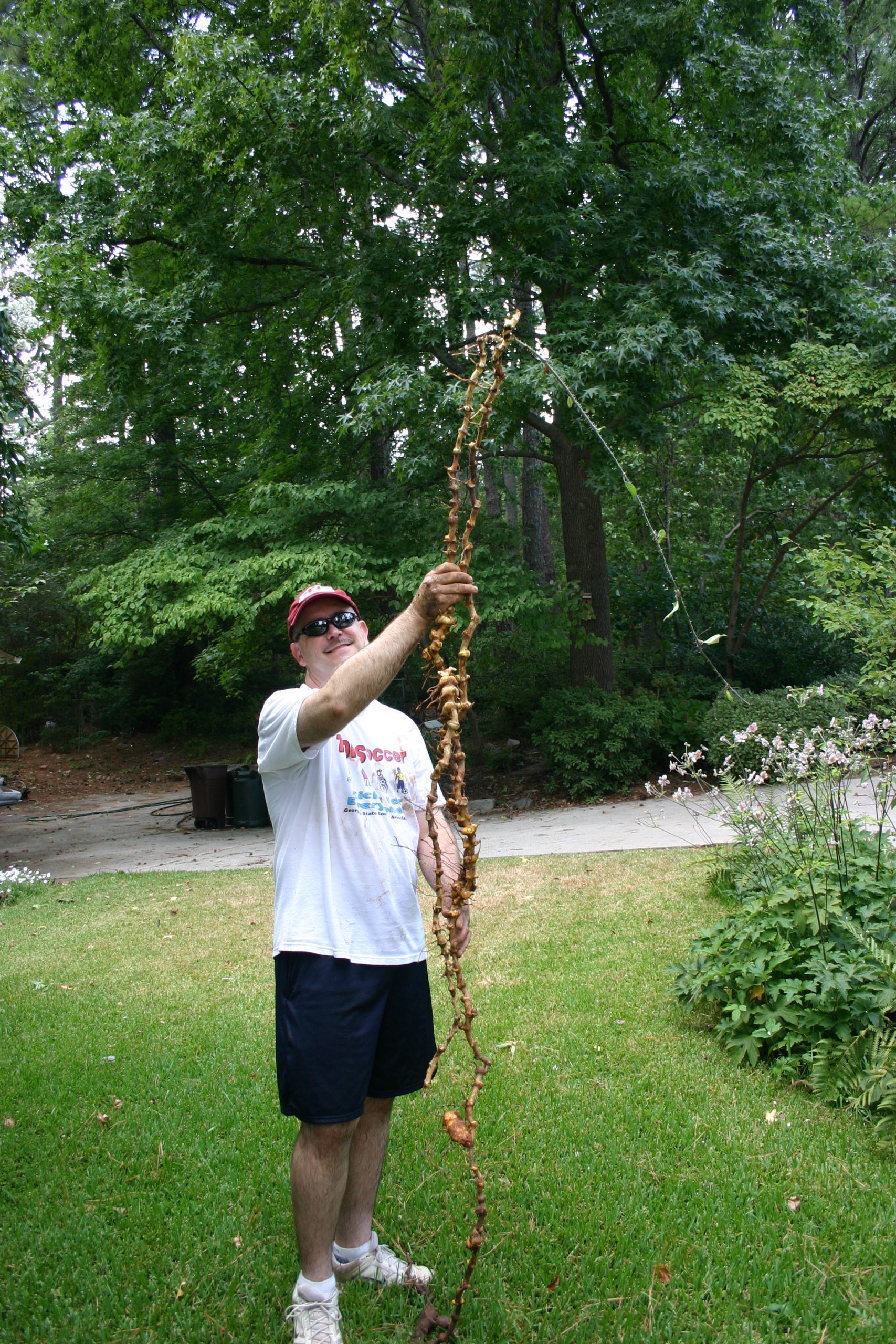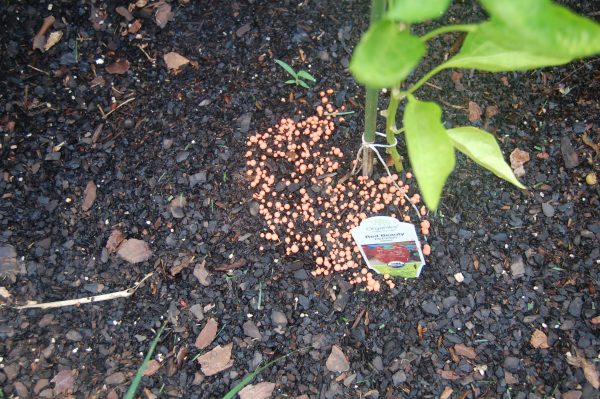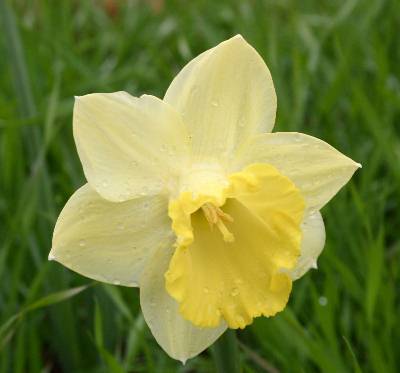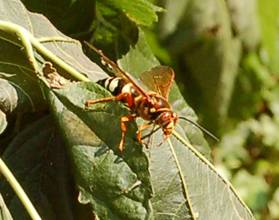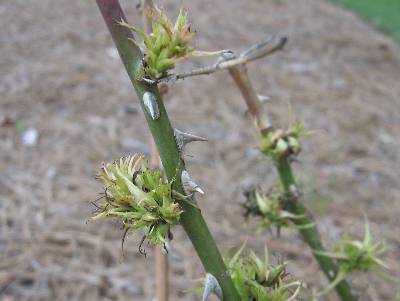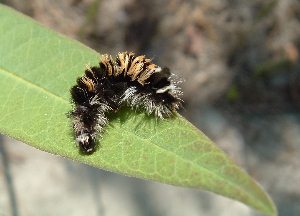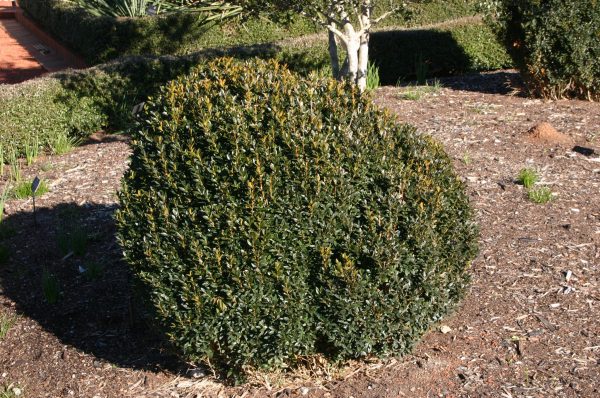Smilax – Identification
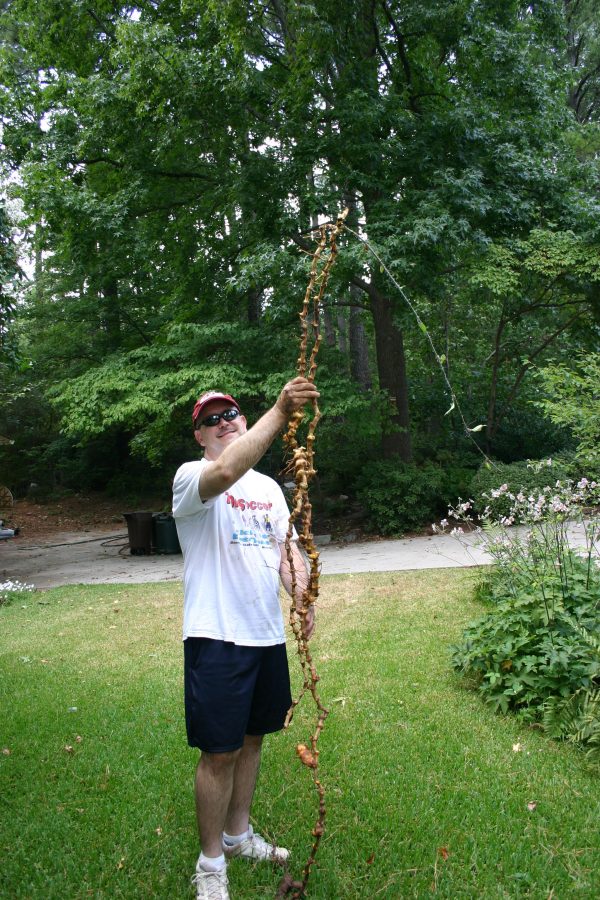
Q: What is this vine and how can I eliminate it from my yard? Or should I? Maybe it serves some useful purpose I don’t know about. It has miserable thorns and appears everywhere I want to be. They seem to grow in bunches and have blue berries on them in winter.
A: No one smiles when they encounter smilax!
It has wicked thorns, it laughs at herbicides and it always seems to come back, no matter how much you pull it out of your shrubs each spring. Smilax, also called deer thorn, catbrier and “that *^!!@ %* !! sticker vine”, is one of the toughest perennial vines with which a gardener has to contend.
The thorny vine with waxy, heart-shaped leaves wends its way through azaleas, English laurel and perennial flower beds with impunity. Smilax has blue, berry-like fruit that birds enjoy —but this vine is no joy to control.
As the smilax begins to grow from seed, it sends up a single shoot and produces an underground tuber. As the plant matures, a large cluster of bulbous roots is created. Only a few shoots will arise from the root mass; the majority of the roots lie dormant. If you kill one shoot, that root may die, but adjacent roots send up shoots within a few days.
Control of smilax should focus on early detection and control before roots are formed. If you find this noxious vine when it is young, dig it up rather than chopping it down. Try to get all the roots out of the ground.
When you have a mature specimen, you can try starving it by continuously clipping the sprouts as they appear over a year’s time. For herbicidal control, spray leaves with glyphosate (click for sources) whenever you see them.
